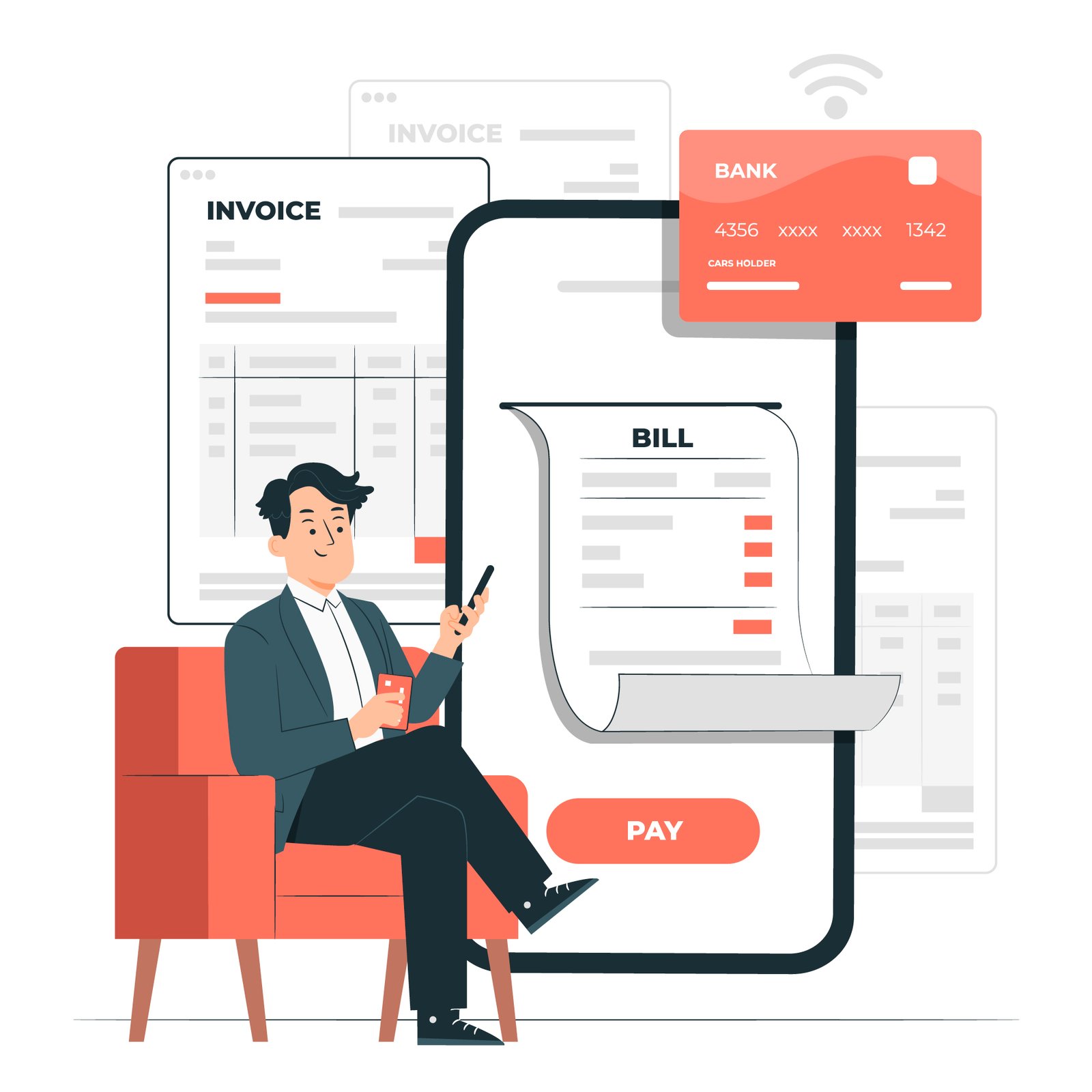Running a business involves many moving parts, but one area that often proves to be a significant challenge is managing billing and invoicing. Manually handling these tasks can result in delayed payments, missed invoices, human error, and a waste of valuable time. This is why many businesses are now turning to billing software to streamline their processes, automate routine tasks, and improve overall efficiency.
In this blog, we will explore how billing software can improve your business efficiency and why it’s an essential tool for any company looking to grow and succeed.
What is Billing Software?
Billing software is a digital tool that automates the billing process for businesses. It helps create, send, and track invoices, manage payments, and keep accurate financial records. By reducing the need for manual input and supervision, billing software allows businesses to operate more efficiently and focus on core activities, such as customer service and business development.
The software is designed to handle everything from generating invoices and calculating taxes to tracking outstanding payments and sending reminders to customers. It can also integrate with other business tools such as accounting systems, payment gateways, and customer relationship management (CRM) platforms.
Why Billing Software is Important for Your Business
Billing is a crucial part of any business, and the way you manage it can have a direct impact on your cash flow, customer relationships, and financial health. Here are some key reasons why investing in billing software is important:
1. Streamlines the Billing Process
Billing software simplifies and speeds up the entire invoicing process. Instead of manually creating invoices for each customer, the software automates the task, allowing you to generate accurate, professional-looking invoices in seconds. Many programs also allow for recurring billing, which is particularly useful for subscription-based businesses.
This streamlined process means you spend less time on billing and more time focusing on growing your business.
2. Reduces Billing Errors
When billing is done manually, there’s always the risk of human error. A simple mistake such as a typo or miscalculation can lead to disputes with customers, delayed payments, or even financial losses.
Billing software eliminates these risks by automating calculations and ensuring that every invoice is accurate. This minimizes the chances of mistakes and ensures that your billing system runs smoothly.
3. Improves Cash Flow
Efficient billing software ensures that invoices are sent out on time, which helps you get paid faster. Late or delayed invoices can hurt your cash flow and make it difficult to manage day-to-day operations. Billing software allows you to set up automated invoicing and payment reminders, encouraging customers to pay promptly.
By improving cash flow, you can maintain better control over your finances and invest in other important areas of your business.
4. Saves Time and Resources
One of the biggest advantages of billing software is the time it saves. Manual billing is time-consuming and requires dedicated personnel to manage invoicing, payments, and follow-ups. With billing software, these tasks are automated, freeing up time for your employees to focus on more productive activities.
By saving time and reducing administrative workload, you can also save money. Instead of hiring more staff to handle billing, the software takes care of the heavy lifting.
5. Enhances Customer Satisfaction
A smooth billing process can enhance the overall customer experience. Invoices that are clear, accurate, and sent on time reflect positively on your business. Customers appreciate the convenience of timely and well-organized invoices, which reduces the likelihood of payment delays or disputes.
Many billing software solutions also offer customer portals where clients can view their invoices, make payments, and access their payment history. This level of transparency and convenience can lead to higher customer satisfaction and stronger relationships.
6. Tracks Payments and Manages Late Fees
Managing late payments can be a challenge, especially for small businesses that rely on timely cash flow. Billing software allows you to track all payments in real-time and identify any overdue invoices.
Some programs also enable you to set up late fees automatically, sending reminders to customers and applying penalties for overdue payments. This not only ensures that customers are aware of their outstanding balances but also encourages prompt payments.
7. Offers Better Financial Reporting
Billing software doesn’t just help with invoicing; it also provides valuable insights into your business finances. Most billing software programs come with reporting features that allow you to track sales, revenue, outstanding payments, and customer accounts.
With detailed financial reports at your fingertips, you can make informed business decisions and keep a close eye on your company’s financial health. Whether you’re tracking performance over time or preparing for tax season, billing software gives you the tools to stay organized and on top of your finances.
8. Ensures Tax Compliance
Tax laws and regulations are complex and vary from region to region. Mismanaging taxes can lead to costly mistakes, penalties, and even legal trouble. Billing software helps you stay compliant by automatically calculating taxes, including VAT, GST, or sales tax, based on local tax laws.
This ensures that your invoices are accurate and tax-compliant, saving you from the headache of managing tax calculations manually.
Key Features to Look for in Billing Software
When choosing billing software for your business, there are certain features you should look for to ensure that it meets your needs. Here are some essential features to consider:
1. Automated Invoicing
The software should offer automated invoicing capabilities, allowing you to generate and send invoices without manual input. This feature should also support recurring billing for subscription-based businesses.
2. Payment Tracking
Choose software that provides real-time tracking of payments, so you always know the status of your invoices. This feature will help you monitor late payments and follow up accordingly.
3. Customizable Invoices
Look for billing software that allows you to customize invoices with your company’s branding, including your logo, colors, and messaging. Customizable invoices create a professional image and help your business stand out.
4. Integration with Accounting Systems
Billing software that integrates with your existing accounting or ERP systems can save you time by syncing financial data automatically. This reduces the need for manual data entry and helps maintain accurate financial records.
5. Customer Portal
A customer portal is a useful feature that provides clients with access to their invoices, payment history, and payment options. This convenience improves the customer experience and encourages prompt payments.
6. Multi-Currency and Multi-Language Support
If your business operates internationally, choose billing software that supports multiple currencies and languages. This will make it easier to manage invoices for clients across different regions.
7. Reporting and Analytics
Detailed reporting and analytics features are essential for monitoring your business’s financial performance. Look for software that provides customizable reports on sales, revenue, and outstanding balances.
How Billing Software Can Benefit Different Industries
Billing software is not limited to any specific type of business—it can benefit companies across a wide range of industries. Here are some examples of how different sectors can take advantage of billing software:
1. Freelancers and Small Businesses
Freelancers and small businesses can benefit from billing software by simplifying invoicing and payment tracking. It saves time, improves professionalism, and ensures that payments are collected promptly.
2. Subscription-Based Businesses
For companies offering subscription services, billing software automates recurring billing, ensuring that payments are processed on time and without manual effort.
3. Healthcare Providers
Medical and healthcare businesses use billing software to manage patient billing, insurance claims, and payments. It streamlines the administrative side of healthcare, allowing providers to focus on patient care.
4. E-commerce and Retail Businesses
Billing software helps e-commerce and retail businesses track sales transactions, generate receipts, and manage customer payments. It integrates with point-of-sale (POS) systems to provide a seamless billing experience for both in-store and online transactions.
5. Service-Based Industries
Service-based businesses, such as consulting firms, legal practices, and agencies, can use billing software to automate time-based billing, create detailed invoices, and track project payments with ease.
Conclusion
Billing software is an essential tool for any business looking to streamline operations, save time, and improve efficiency. By automating the billing process, reducing errors, and offering real-time insights into financial performance, billing software helps businesses grow and thrive.
Whether you’re a small business owner or managing a large enterprise, investing in billing software will help you stay organized, get paid faster, and improve your customer relationships. As your business continues to grow, billing software can scale with you, providing the flexibility and support you need to succeed in a competitive market.
If you’re still relying on manual invoicing and payment tracking, it’s time to make the switch to billing software. The benefits far outweigh the cost, and the impact on your business efficiency will be immediate and lasting.
Read More:- Becoming a Full Stack Developer: Skills and Strategies



